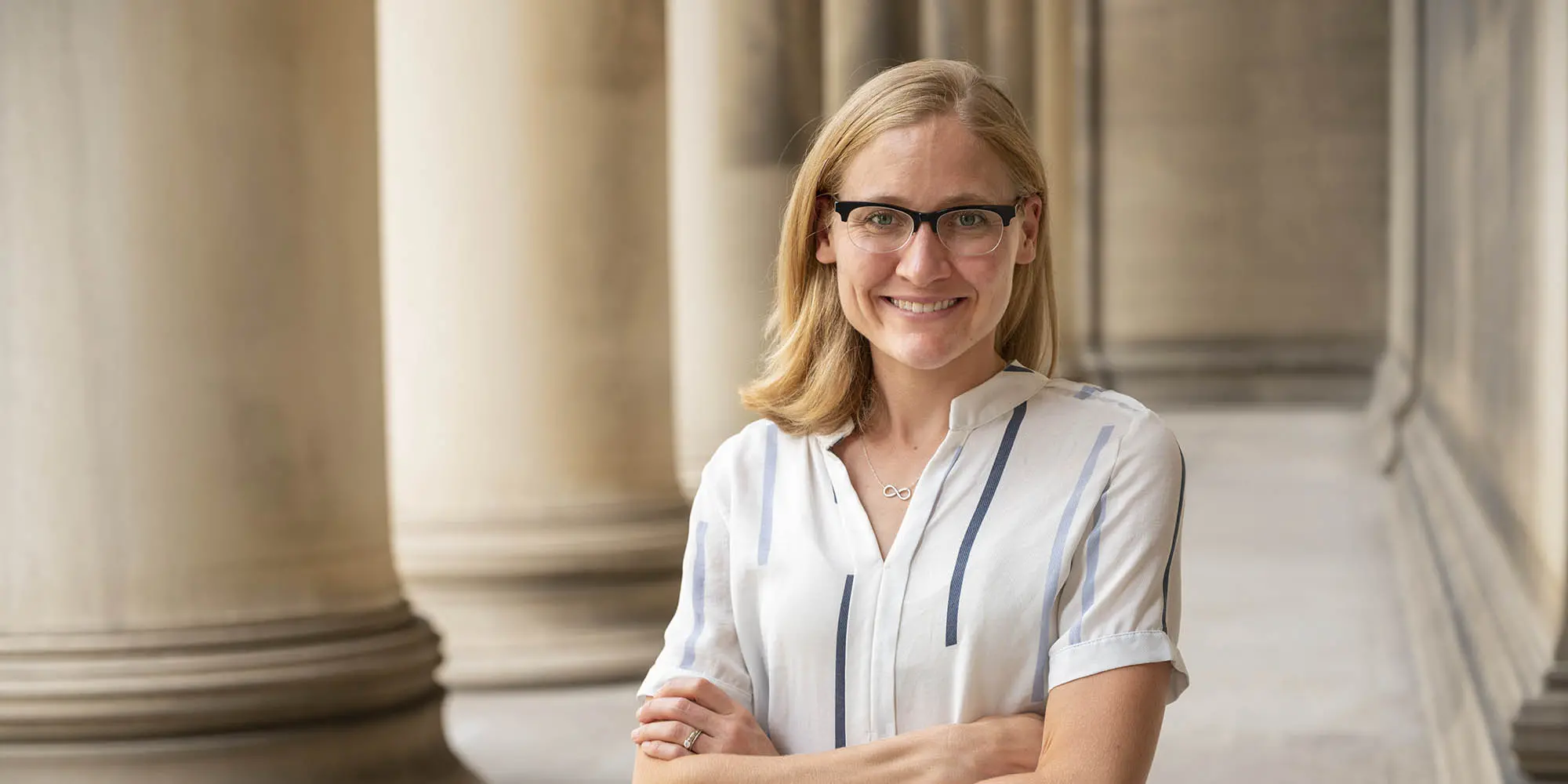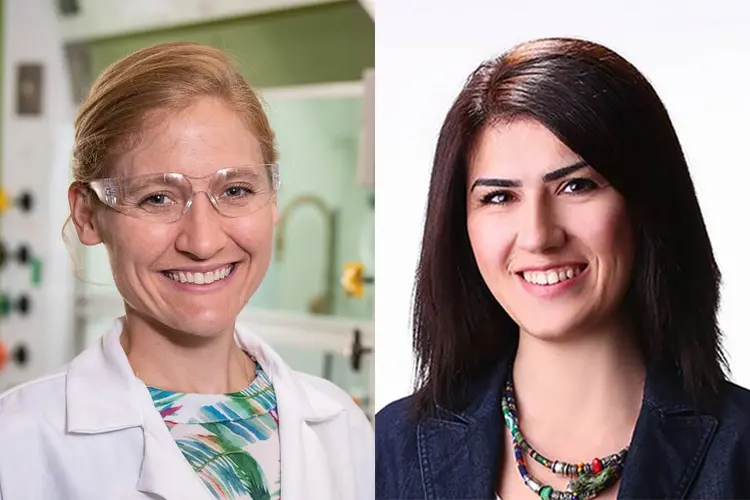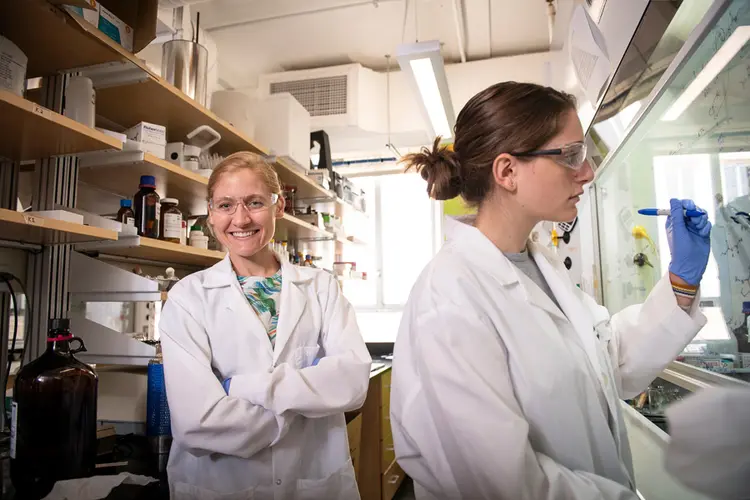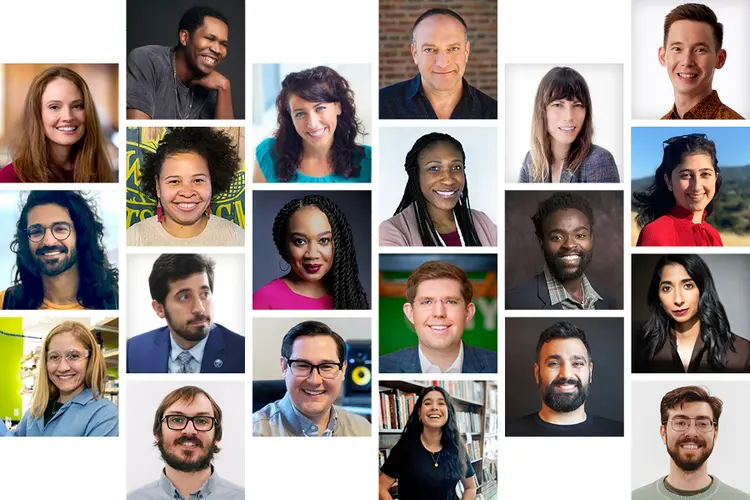
Stefanie Sydlik Named a 2022 Moore Inventor Fellow
Established by the Gordon and Betty Moore Foundation, the fellowship honoring one of Silicon Valley's founders recognizes early-career, scientist-inventors across the country
Media Inquiries
Stefanie Sydlik(opens in new window), an associate professor of chemistry and biomedical engineering, has been named Carnegie Mellon University's first Moore Inventor Fellow(opens in new window) to further her work related to the development of a new tool for treating low-levels of lead poisoning.
The fellowship, created by the Gordon and Betty Moore Foundation, supports scientist-inventors who create new tools and technologies with a high potential to accelerate progress in the foundation's areas of interest: scientific discovery, environmental conservation and patient care.
Sydlik's startup company, BioBind, is working on a therapy that uses molecular design to take a new approach for lead chelation.
"We take a natural biopolymer and create a chemical bond to a small chelator molecule which creates a large, biomimetic chelator," said Sydlik, a 2007 graduate of CMU's Mellon College of Science(opens in new window). "By doing so, we're able to disguise the toxicity of the chelators and allow the metal to be removed from the body more safely."
According to the Centers for Disease Control and Prevention (CDC), there is no safe level of lead exposure for children. But studies show that in low-income neighborhoods, as many as half of U.S. children are exposed to dangerous lead levels, often through contaminated water and soil or lead paint. Exposure to lead can slow growth and development, decrease IQ and cause problems related to learning and behavior.
Treatments using chelators — compounds that combine with metal to help remove them from the body — are available for people with high levels of lead poisoning. But chelators have their own toxicity risks so they are not used for low- to mid-level instances of lead poisoning.
More than half of a million children in the United States have low- to mid-level exposure to lead, which can have many of the same health effects as high exposure. Right now, there are no available safe and effective treatments for low- to mid-level lead exposure, but BioBind's approach shows great promise for children, who often suffer the most adverse impacts from exposure to lead.
"Disproportionately, low-level lead exposure affects children in families with lower socioeconomic status, and can perpetuate the cycle of poverty income areas," she said. "This work is about public health and addressing economic injustice. As a chemist, I never thought that public health is something I could have an impact on," Sydlik said. "It is exciting and empowering knowing that scientists at CMU are impacting public health in big ways."
Sydlik joined the faculty at Carnegie Mellon in 2015 after completing a postdoctoral fellowship in chemical engineering and a Ph.D. in organic chemistry at MIT. As an MCS undergraduate, she was selected as a Beckman Scholar in 2006 and received the 2007 Judith A. Resnik Award. As an alumnus, Carnegie Mellon named her to its first class of Tartans on the Rise(opens in new window), which recognizes young alumni who are making an impact in their communities and the world. The American Chemical Society Division of Polymeric Materials: Science and Engineering named Sydlik a Young Investigator in 2018 and she was named a member of the World Economic Forum's Community of Young Scientists(opens in new window) in 2020.
Along with Sydlik's work on a promising therapy for low-level lead poisoning, the 2022 cohort of inventors are working toward creating an environmentally friendly way to stay cool using solid refrigerants, real-time sensing of chemical concentrations using microcombs, a biochemical system to map protein secretions in live tissue biopsies and a chip-scale sensor to detect the proteins in a single cell.
"The Moore Inventor Fellowship recognizes the power of innovation to solve problems and reimagine our world," said Harvey V. Fineberg, president of the Gordon and Betty Moore Foundation. "We are pleased to recognize the spectrum of disciplines, ideas and approaches embodied in this group of fellows."
Each fellow receives a total of $825,000 over three years to drive their invention forward, which includes $50,000 per year from their home institution as a commitment to these outstanding individuals.
Launched in 2016 to celebrate the 50th anniversary of Moore's Law, the revolutionary prediction that anticipated the exponential growth of computing power, the fellowship embraces the spirit of Gordon Moore's passion for science and penchant for inventing.
— Related Content —

CMU Faculty Join WEF's Community of Young Scientists

